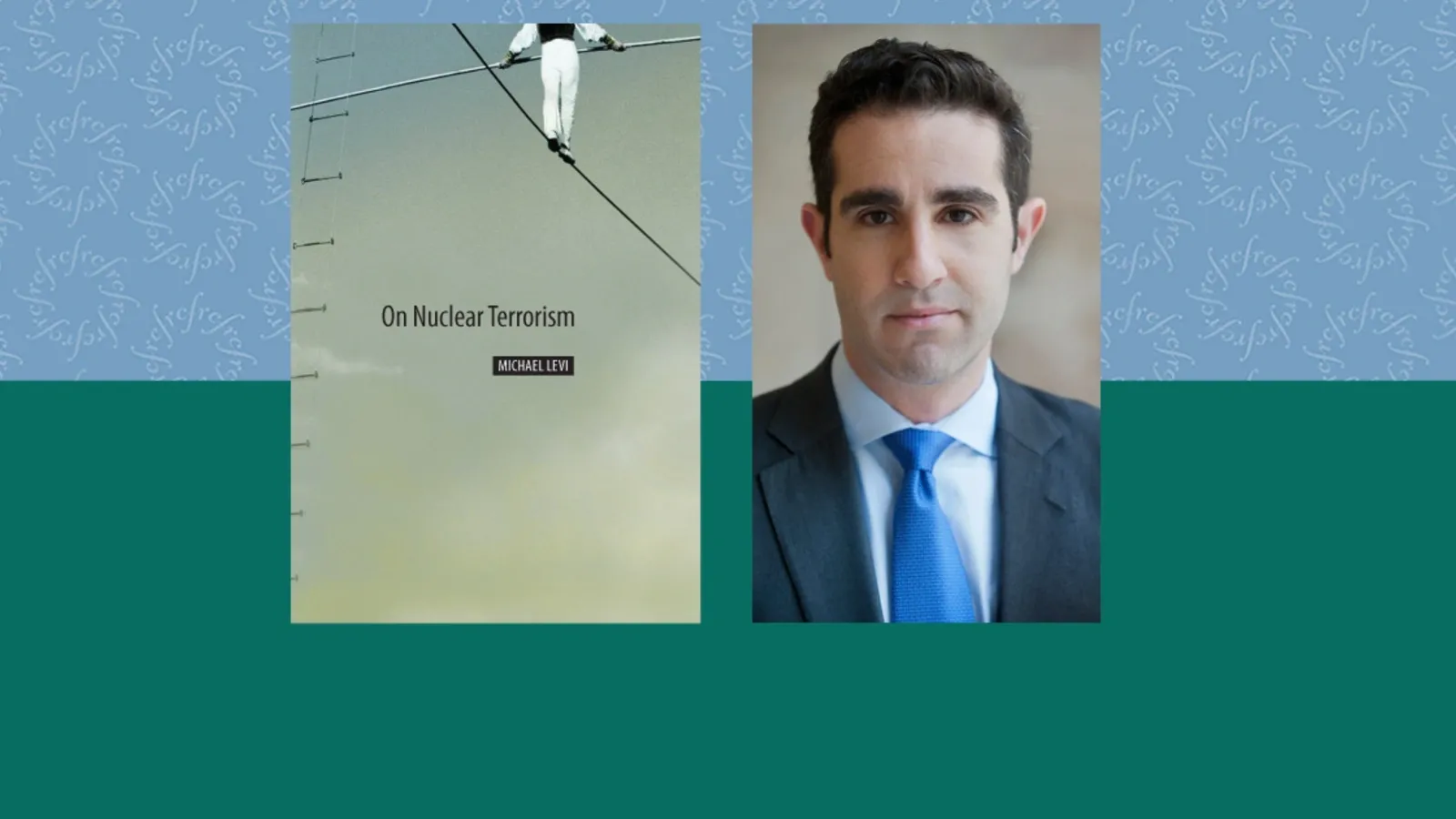On Nuclear Terrorism

Introduction
In this book, CFR Senior Fellow Michael A. Levi examines one of the greatest national security threats of our time—terrorist groups armed with nuclear weapons—and argues that only a broad-based and multi-layered defense can be effective in confronting it. Teaching notes by the author.
Summary
On Nuclear Terrorism confronts what many argue is the greatest national security threat we face: terrorist groups armed with nuclear weapons. In contrast with most writing on the subject, which focuses on the need to secure sources of nuclear weapons and materials, this book argues that only a broad-based and multi-layered defense can be effective in confronting nuclear terrorism. To make that case, it carefully examines the challenges involved in executing a nuclear plot from start to finish, drawing lessons from diverse areas such as the drug trade, nuclear physics, black market economics, and traditional counterterrorism.
This book is suitable for courses on national security policy, terrorism and counterterrorism policy, and nuclear weapons policy.
Discussion and Essay Questions
Courses on National Security Policy
- How should nuclear terrorism rank amongst U.S. national security priorities?
- How should governments balance investments in traditional counterterrorism and nuclear-specific defenses?
- What role should diplomacy play in preventing nuclear terrorism?
- To what extent can nuclear terrorism be handled within traditional national security bureaucracies?
- What is the role of entities other than the federal government in preventing nuclear terrorism? Are there patterns here that apply to modern national security policy more broadly?
Courses on Terrorism and Counterterrorism Policy
- How does the nuclear threat rank amongst other threats of terrorism?
- How should governments balance investments in traditional counterterrorism and nuclear-specific defenses?
- How useful are the "second lines of defense" compared to securing nuclear materials at the source?
- What types of terrorist groups are likely to find nuclear terrorism attractive? What types of groups are likely to be able to execute nuclear attacks? How do these two categories overlap?
- How important are offensive tactics (such as efforts in Afghanistan) to preventing nuclear terrorism?
Courses on Nuclear Weapons Policy
- What are the greatest barriers to executing a nuclear terrorist attack?
- What role does terrorist psychology play in shaping potential attacks? How can a defense leverage that?
- How valuable is radiation detection as a tool for confronting nuclear terrorism?
- Is central coordination of defense against nuclear terrorism useful? Is is feasible?
- How should one assess costs and benefits when developing a strategy for dealing with nuclear terrorism?
- How should governments balance investments in traditional counterterrorism and nuclear-specific defenses?
Supplementary Materials
Allison, Graham, Nuclear Terrorism: The Ultimate Preventable Catastrophe (New York, NY: Times Books, 2004).
Bunn, Matthew, Securing the Bomb 2008 (Cambridge, MA / Washington, DC: KSG/NTI, 2008).
Falkenrath, Richard A. et al., America's Achilles' Heel: Nuclear, Biological, and Chemical Terrorism and Covert Attack (Cambridge, MA: MIT Press, 1998).
Ferguson, Charles D., Preventing Catastrophic Nuclear Terrorism, Council Special Report No. 11 (New York, NY: Council on Foreign Relations, 2006).
Ferguson, Charles D. and William C. Potter, The Four Faces of Nuclear Terrorism (New York, NY: Routledge, 2005).
Hoffman, Bruce, Inside Terrorism (New York, NY: Columbia University Press, 1998).
Jenkins, Brian Michael, Will Terrorists Go Nuclear? (Prometheus Books, 2008).
Levi, Michael A., Deterring State Sponsorship of Nuclear Terrorism, Council Special Report No. 39 (New York, NY: Council on Foreign Relations, 2008).
Levi, Michael A. and Michael E. O'Hanlon, The Future of Arms Control (Washington, DC: Brookings Institution Press, 2005).
Lugar, Richard G., The Lugar Survey on Proliferation Threats and Responses (Washington, DC: Office of Senator Richard Lugar, 2005).